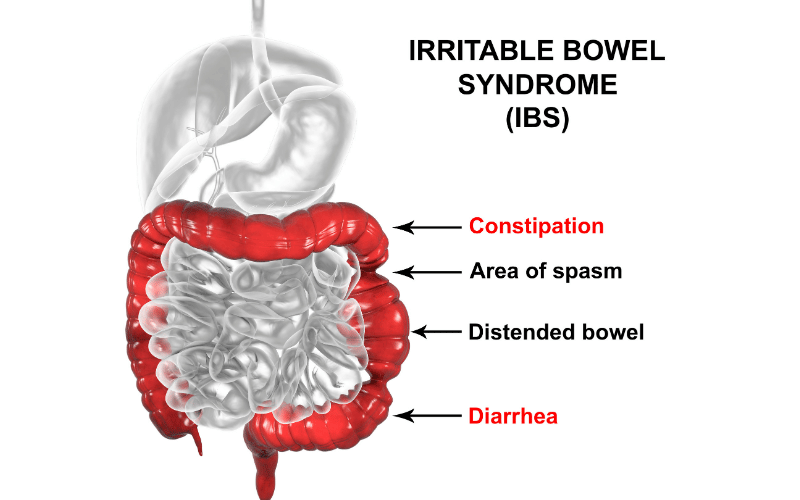Introduction: Know Your IBS: Unmasking the Predominant Symptoms
Irritable Bowel Syndrome, often abbreviated as IBS, remains an enigma for many. While it’s widely discussed, there’s a cloud of uncertainty surrounding its symptoms and their implications. This condition, primarily affecting the large intestine, manifests in a variety of ways, often leaving the affected individuals in discomfort or pain.

As a disorder, IBS isn’t limited to just one symptom. The symptoms can range from mild discomfort to severe distress, sometimes even impacting daily routines. It’s essential to be aware of these indicators, as recognizing them early can lead to more manageable and tailored treatments. However, while many might have heard of IBS, not everyone knows the specific signs to look out for.
Diving deep into the topic, we will explore the top 10 symptoms associated with IBS. Through this detailed examination, our aim is to empower readers with knowledge, helping them understand what their bodies might be signaling. Awareness is the first step towards effective management, and with the right information at hand, you can navigate the realm of IBS more confidently.
Whether you or someone you know is grappling with these symptoms, or you’re just curious to understand more, this article serves as a beacon of information. Let’s journey together into the world of IBS, unearthing the critical symptoms that deserve attention and understanding.
1. Abdominal Pain and Cramping: The IBS Distress Signal

Many people encounter occasional stomach discomfort, but with IBS, abdominal pain takes on a distinct form. Typically located in the lower abdomen, this pain often feels like a relentless cramping, almost as if the intestines are in a twist. One might describe it as a tugging sensation, alternating between sharp jabs and dull aches.
Dietary choices sometimes act as the culprits. Spicy foods, dairy, or even high-fiber foods can exacerbate this symptom in certain individuals. Surprisingly, emotions play a part too. Stress, anxiety, or significant life changes can sometimes amplify these abdominal discomforts.
Interestingly, the pain usually dissipates after a bowel movement, offering a temporary respite to the sufferer. This correlation between bowel movements and pain intensity serves as a clear identifier for IBS-related discomfort. It sets it apart from the typical stomachaches we’re all too familiar with.
There’s also a rhythm to this pain. It might flare up for a few days and then subside, only to return later. This cyclical nature can disrupt one’s daily activities, affecting everything from work commitments to social plans. Hence, understanding the triggers and patterns is crucial.
Despite its challenges, individuals often find solace in simple remedies. Warm baths, gentle abdominal massages, or even peppermint oil can provide fleeting moments of relief, though it’s essential to remember that what works for one might not work for another. Personalized coping strategies often prove most effective. (1)